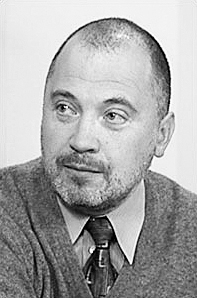 Nikolai Petrov
Nikolai PetrovA funny message has been circulating on Russian social media networks. If you do a search using the words "mayors arrested," you will get multiple results for the cities of Rybinsk, Berdsk, Yaroslavl, Makhachkala and Astrakhan. Last week, former Astrakhan Mayor Mikhail Stolyarov became the third mayor of a regional center after Yaroslavl and Makhachkala to be arrested under charges of taking bribes.
The reasons for the other arrests differ. Former Makhachkala Mayor Said Amirov was arrested in early June on charges of involvement in the murder of a federal official. That move might have been motivated in part because Amirov is not just a mayor but the second most powerful figure in the North Caucasus. Only Chechen President Ramzan Kadyrov is more influential. With the old model of purchasing loyalty from Dagestan's ethnic clans proving to be largely ineffective, a frustrated Moscow shifted to applying force instead.
The mayors of Yaroslavl, Berdsk, Bratsk and other cities were arrested because they are opposition members who had defeated mayors who were members of United Russia. According to a report published in late 2011 by Mikhail Tulsky, president of the Political Analysis think tank, of the 50 or so mayors "repressed" under former President Dmitry Medvedev, nine of every 10 elected mayors who fought against United Russia were either imprisoned or removed from office.
The third set of dismissals is the result of power struggles between the ruling elite and has involved a number of mayors who had been considered strong leaders of such regional capitals as Yekaterinburg, Irkutsk and Krasnoyarsk. Many were forced to "voluntarily" resign in return for new postings to, for example, a coveted spot on the Federation Council. This practice has been especially evident in the Moscow region, where the new governor is actively removing members of the old ruling team, including Stolyarov.
Stolyarov is far from the first mayor from United Russia that has been publicly punished for taking bribes, although he is possibly the most prominent on that list. Recall that Stolyarov took office only in March 2012, following scandalous elections that even the Russian courts found had been marred by widespread fraud. Opposition candidate Oleg Shein rightly accused Stolyarov of stealing his victory and staged a long hunger strike in protest. Although the Kremlin ignored his protests, it has now removed the controversial mayor — and with good cause. During the short time Stolyarov was in office, criminal charges were filed against seven of his deputy mayors.
Apparently, the Kremlin decided to cope with its serious and prolonged political crisis by shaking off unnecessary deadweight, eliminating every mayor that fed off the party of power rather than strengthened it. It is ironic that during the Soviet era, officials were first stripped of their party membership before standing trial for crimes. Now, during its latest congress, United Russia introduced changes to its charter that automatically cancel the party membership of anyone convicted of a crime.
In that sense, it would no longer be fair to call United Russia the "party of crooks and thieves" because the moment a party member is convicted of a crime, he is no longer a member.
Nikolai Petrov is a professor of political science at the Higher School of Economics.
A Message from The Moscow Times:
Dear readers,
We are facing unprecedented challenges. Russia's Prosecutor General's Office has designated The Moscow Times as an "undesirable" organization, criminalizing our work and putting our staff at risk of prosecution. This follows our earlier unjust labeling as a "foreign agent."
These actions are direct attempts to silence independent journalism in Russia. The authorities claim our work "discredits the decisions of the Russian leadership." We see things differently: we strive to provide accurate, unbiased reporting on Russia.
We, the journalists of The Moscow Times, refuse to be silenced. But to continue our work, we need your help.
Your support, no matter how small, makes a world of difference. If you can, please support us monthly starting from just $2. It's quick to set up, and every contribution makes a significant impact.
By supporting The Moscow Times, you're defending open, independent journalism in the face of repression. Thank you for standing with us.
Remind me later.






